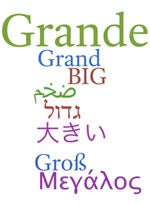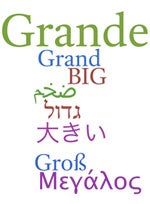 KINGSTON, R.I. –February 10, 2010—The popularity of language courses at the University of Rhode Island has skyrocketed.
KINGSTON, R.I. –February 10, 2010—The popularity of language courses at the University of Rhode Island has skyrocketed.
“I believe we have one of the largest–if not the largest language program–in the country per capita,” says Joe Morello, professor of French and chair of URI’s Department of Modern and Classical Languages and Literatures.
More than 2,500 students take a language course each semester or about 20 percent of URI’s undergraduate population.
French, German, Spanish, Italian language courses are the most popular. French and Spanish each has about 155 majors; German has about 125 majors, and Italian about 65 majors. The Department also offers a minor in Chinese and coursework in Arabic, Hebrew, Japanese, modern Greek, and Portuguese. The Chinese program is currently supported by a $1,000,000 grant from the National Security Education Program (Department of Defense.)
When compared to 609 students at other colleges and universities that participated in the 2007 National Survey of Student Engagement, the last time URI participated in the survey, URI students led the pack in foreign language enrollment. Seventy two percent of the 886 randomly selected URI seniors surveyed said they had studied a foreign language compared with 41 percent of students at other colleges.
For years, language courses languished at URI and elsewhere with a handful of student majors.
So what has made the difference at URI? The University found pairing a language and cultural studies with another academic program gave students opportunities at global companies with offices in the U.S. and around the world.
It all started with a backyard fence conversation. During the mid 1980s URI German Professor John Grandin leaned over his fence to talk with his neighbor Hermann Viets, then dean of URI’s College of Engineering, about combining the German language studies with an engineering discipline.
That chat led to the establishment of URI’s International Engineering Program in 1987 that allows students to pursue simultaneously degrees in engineering and in German. In the fourth year of the five-year program, students travel abroad as interns with engineering-based firms and as exchange students with one of URI’s partner universities.
The program became a national model and has since been duplicated at other colleges across the country.
Today 242 students are enrolled in the program, which now pairs the French and Spanish languages in addition to German with an engineering discipline. Students also have the opportunity to minor in Chinese and Asian studies. More than 40 IEP students are studying and interning abroad this year in Germany, France, Spain, and China.
The International Business Program was formed in 2007. Similar to the International Engineering Program, business students earn two degrees—one in business and one in French, Spanish, German, Italian and Chinese (a minor.) There are 36 students majoring in the program.
Other combinations of language and discipline include pharmacy and French and textiles with French and Italian.
“Companies are desperately seeking employees who are bilingual and who have cross-cultural communication skills to interact with peers around the world,” said Grandin, the first and still the most successful matchmaker of language and discipline at URI.
“URI’s tagline is Think Big. We Do. with a globe. Language courses coupled with global experiences definitely are embraced by this department and this University,” says Morello.

